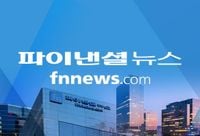Tension is rising in the Korean semiconductor industry as the longstanding partnership between SK Hynix and Hanmi Semiconductor faces unprecedented challenges. On April 28, 2025, SK Hynix announced it would diversify its supply of TC bonders, a critical component for high-bandwidth memory (HBM) production, which has sparked significant backlash from Hanmi Semiconductor.
For the first time, SK Hynix is reviewing not just TC bonders but all equipment supplied by Hanmi Semiconductor, a move perceived internally as a major provocation. This shift comes after Hanmi Semiconductor's recent decision to withdraw engineers from SK Hynix's Icheon plant, an act viewed as a direct challenge to their eight-year collaboration.
Hanmi Semiconductor, the market leader in TC bonders, has supplied SK Hynix with essential equipment since 2017, fostering a mutually beneficial relationship that has allowed both companies to thrive. Last year, Hanmi Semiconductor achieved record sales of 558.9 billion won and maintained a remarkable operating profit margin of 45.6%. However, the dynamics have shifted dramatically with SK Hynix's new strategy.
In a bold response to SK Hynix's diversification efforts, Hanmi Semiconductor has not only called back maintenance personnel but also announced a 28% price increase for its TC bonders. The company had previously supplied these components at a 30% discount, which has now been rendered moot as SK Hynix opts for new suppliers, including Hanwha Semitech, which offers equipment approximately 20% cheaper than Hanmi's.
Industry insiders suggest that this growing rift may lead to significant losses for Hanmi Semiconductor. "If SK Hynix shifts to alternative suppliers, the impact on Hanmi Semiconductor could be substantial," noted an industry expert. The ongoing patent infringement lawsuit between Hanmi Semiconductor and Hanwha Semitech adds another layer of complexity to this evolving situation.
SK Hynix's decision to explore new supply options is not merely a tactical shift; it reflects deeper concerns about reliance on Hanmi Semiconductor's technology and potential production risks. Reports indicate that SK Hynix has already reduced orders for TC bonders from Hanmi for its Cheongju plant's next-generation HBM line, raising alarms about the future of their partnership.
Despite the tension, Hanmi Semiconductor's leadership remains confident in their technological superiority. Chairman Kwak Dong-won remarked, "There is a significant gap in technology between us and new entrants like Hanwha Semitech. They will likely only secure minor orders." This sentiment underscores the belief that Hanmi's established market position and technical expertise may still offer a competitive edge.
On the other hand, Hanwha Semitech's backing from the Hanwha Group, led by Vice President Kim Dong-seon, could bolster its competitive stance. The company has committed to ongoing investments to enhance its capabilities in the semiconductor sector, which could pose a serious challenge to Hanmi Semiconductor's dominance.
The market responded sharply to these developments, with Hanmi Semiconductor's stock plummeting by 6,100 won (-8.00%) to 75,900 won on the same day, while SK Hynix fell by 2,400 won (-1.30%) to 182,000 won. In contrast, Hanwha Vision, Hanwha Semitech's parent company, saw a rise of 3,800 won (6.76%) to 60,000 won, indicating a potential shift in investor confidence.
As the situation unfolds, both companies are at a crossroads. SK Hynix's push for diversification is seen as a necessary step to mitigate risks associated with supply chain dependency, while Hanmi Semiconductor's aggressive pricing strategies and legal actions signal a determination to maintain its market position.
Looking ahead, the upcoming Macquarie Asia Conference on May 12, 2025, where Hanmi Semiconductor plans to present insights on the AI (HBM) market outlook and its roadmap for next-generation HBM4 production bonders, will be crucial. This event could provide further clarity on how Hanmi intends to navigate the current turbulence and respond to shifting market demands.
In conclusion, the semiconductor industry is witnessing a significant transformation as SK Hynix and Hanmi Semiconductor navigate their evolving relationship. The outcome of this conflict will not only impact the companies involved but could also reshape the landscape of the Korean semiconductor market as a whole.

![[단독]](https://thumbor.evrimagaci.org/z2HCNE-w6UtbeZawityury_NA5A=/200x0/tpg%2Fsources%2F0704f33f-1eea-4545-a759-725250ab3610.jpeg)
